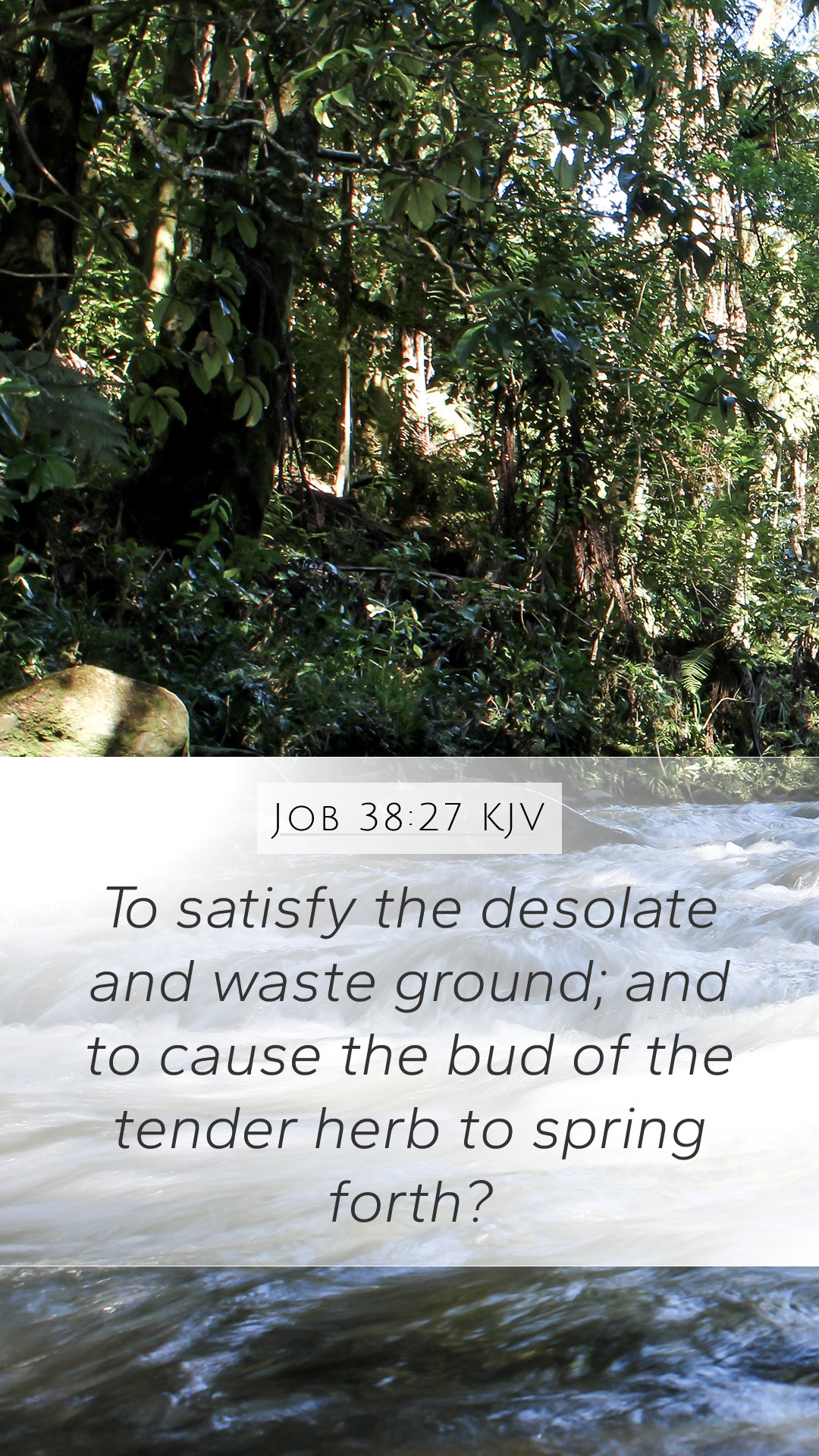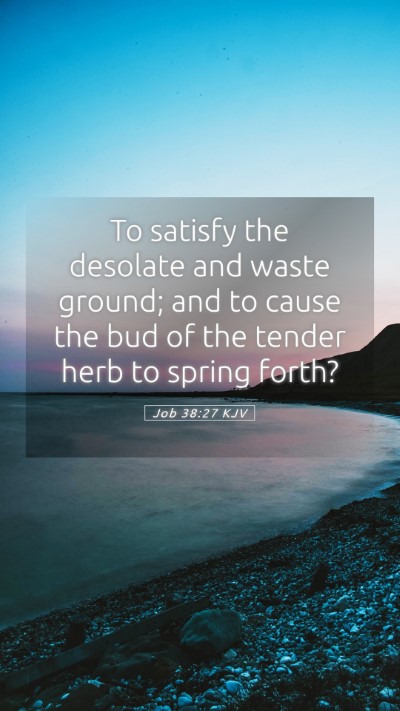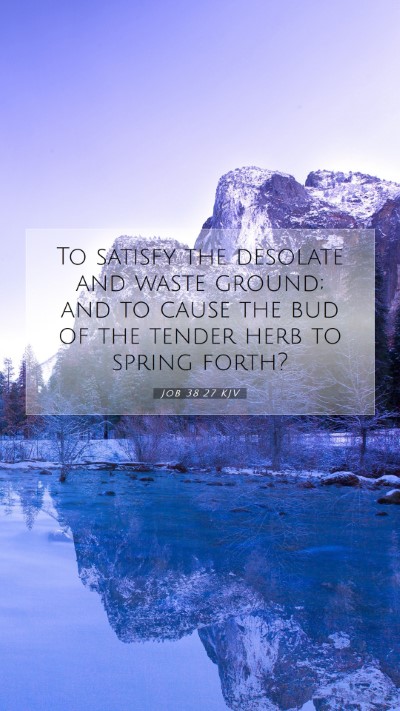Bible Verse Meaning and Interpretation: Job 38:27
Job 38:27: "To satisfy the desolate and waste ground; and to cause the bud of the tender herb to spring forth."
Overview and Context
The Book of Job explores profound themes of suffering, divine justice, and human ignorance in the face of divine wisdom. In Job 38, God responds to Job's lamentations and questions about his suffering. This particular verse illustrates God's providential care and the intricate workings of nature.
Bible Verse Explanations
The verse can be broken down into two primary points:
- Desolation and Waste: The reference to the desolate and waste ground echoes the theme of barrenness and the consequences of sin. God expresses His sovereignty over nature, highlighting that even in desolation, His purposes are at work.
- New Life and Growth: The budding of tender herbs signifies hope, renewal, and God's ability to bring forth life from lifelessness. It emphasizes God's nurturing aspect as He provides for His creation.
Bible Verse Commentary
Matthew Henry's Commentary: Henry emphasizes that God's care extends to even the most barren places. He notes that the Almighty Creator sustains all of creation, ensuring that life springs forth in the most unlikely environments.
Albert Barnes' Commentary: Barnes points out that this verse showcases God's control over nature, portraying how He can bring forth plants and life from wastelands. It serves as a reminder of God's ability to fulfill His purposes, regardless of the circumstances.
Adam Clarke's Commentary: Clarke provides insight into the significance of the tender herb, connecting it to the sustenance and provision in a world that seems desolate. He suggests that this is a metaphor for spiritual nourishment, where God’s grace provides abundance even in our spiritual dryness.
Understanding Scripture and Applications
When interpreting Job 38:27, one can draw several applications:
- Trust in God’s Plan: Even during times of desolation, believers can trust that God is at work, bringing growth and renewal in their lives.
- Hope in Difficult Times: The imagery of budding herbs serves as a reminder that new beginnings can arise from our hardships.
- Divine Sustenance: Just as God provides for the natural world, He also sustains us spiritually, meeting our needs in seasons of drought.
Related Bible Cross References
- Isaiah 41:18-19: God's promise to provide water and growth in the wilderness.
- Psalms 104:14-15: God providing grass for the cattle and vegetation for man to cultivate.
- Matthew 6:26: God’s care for birds emphasizes His provision for all His creation.
Conclusion
Job 38:27 speaks volumes about God’s sovereignty and care over creation, which can encourage believers facing desolate circumstances. As we study this verse, we gain insight into the nature of God and the assurance of His power to bring life from barrenness, encapsulating the rich tapestry of the Biblical narrative.


